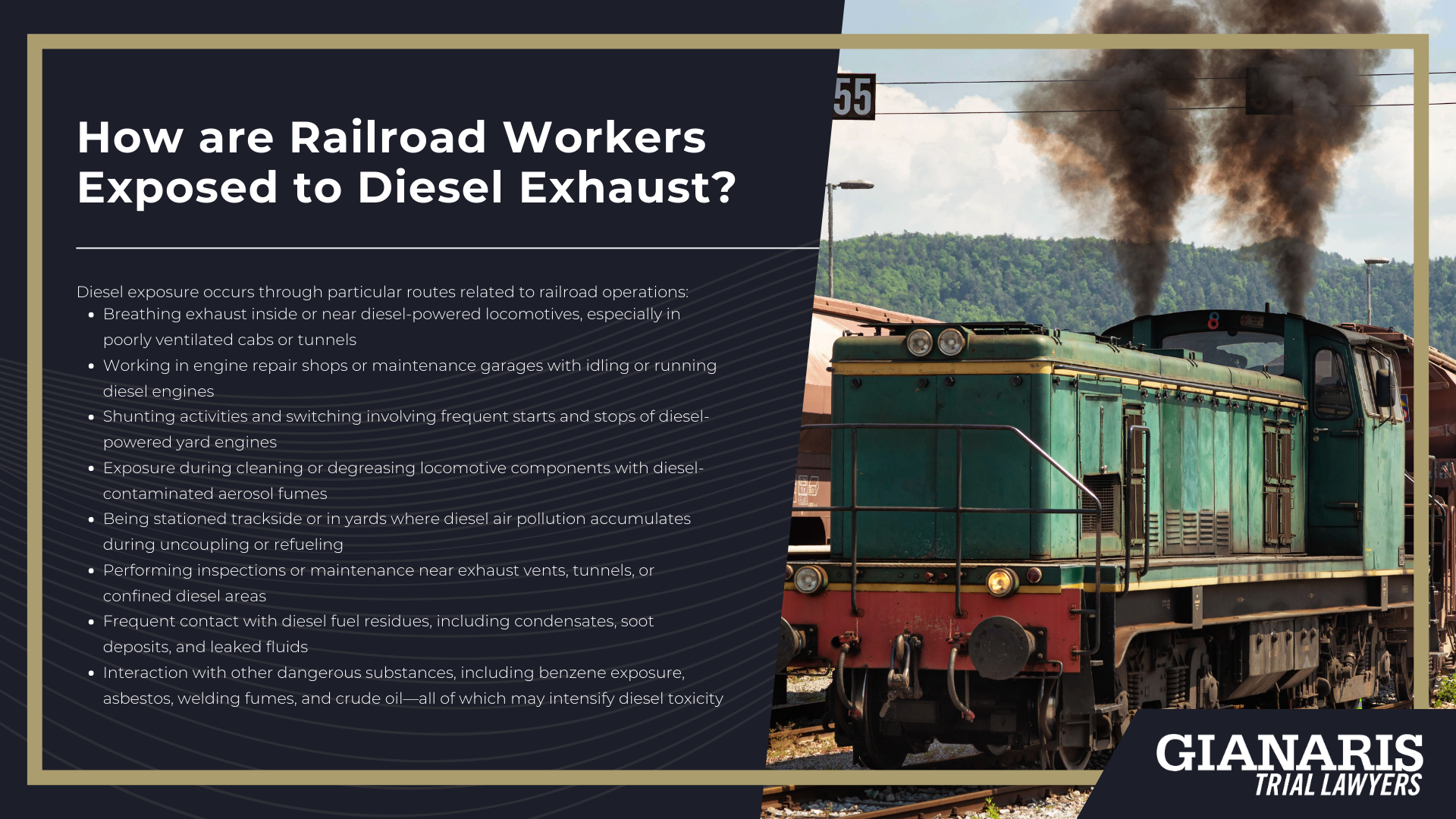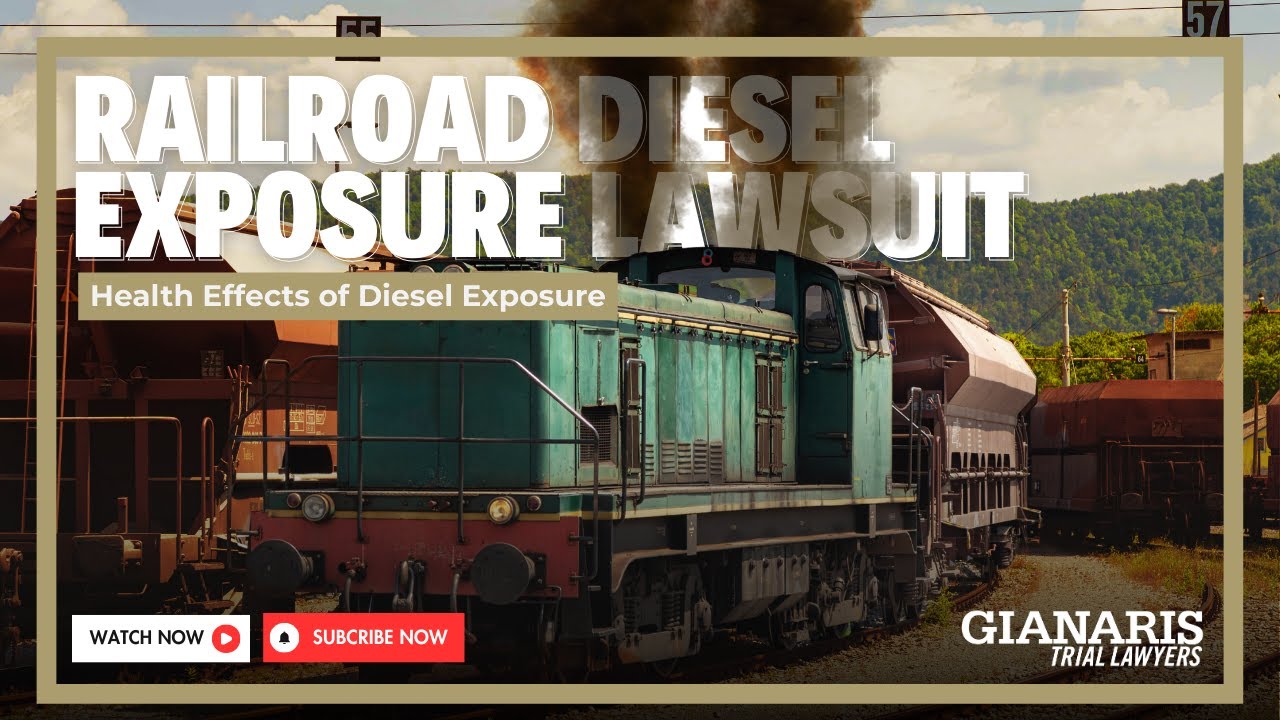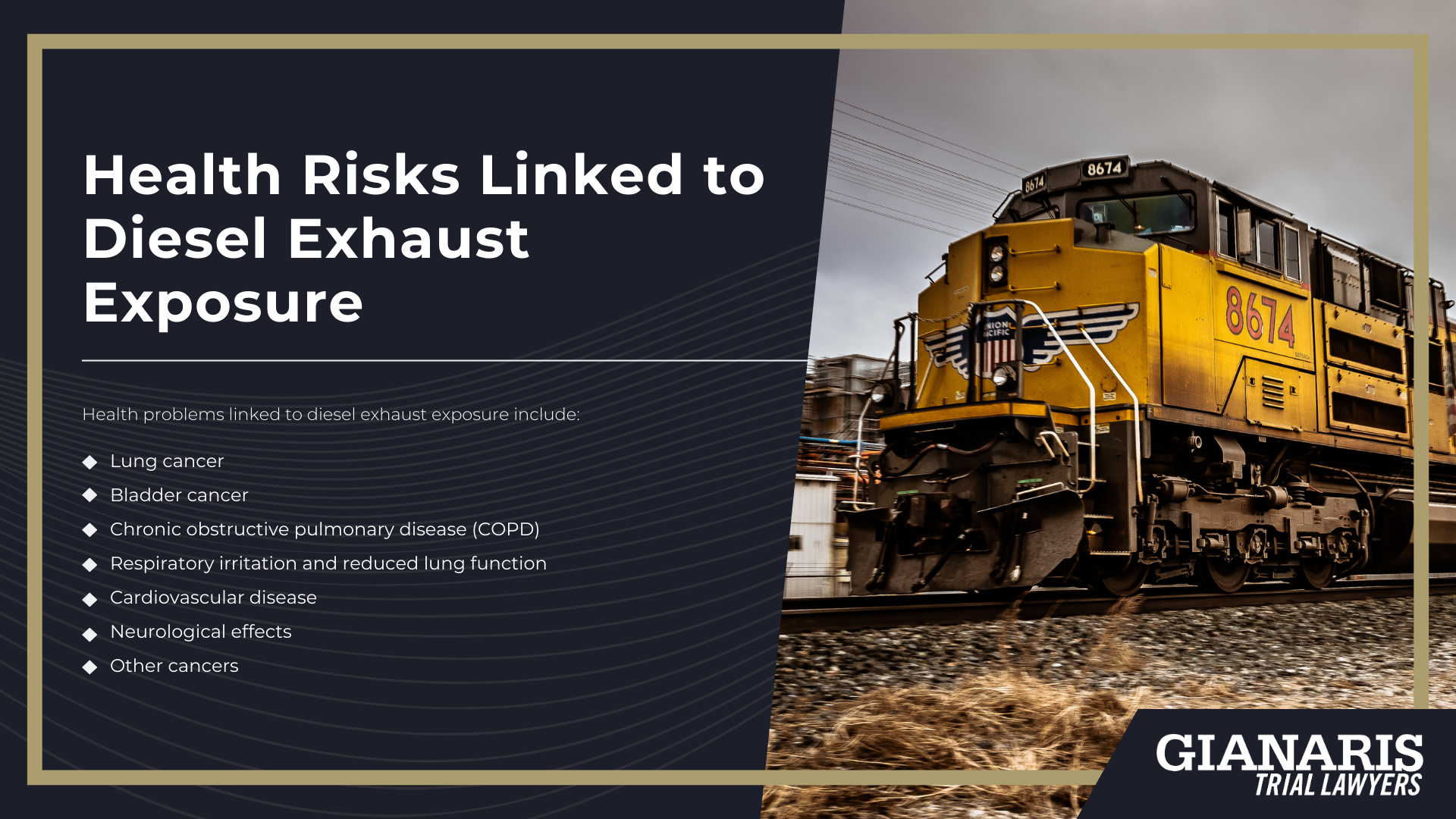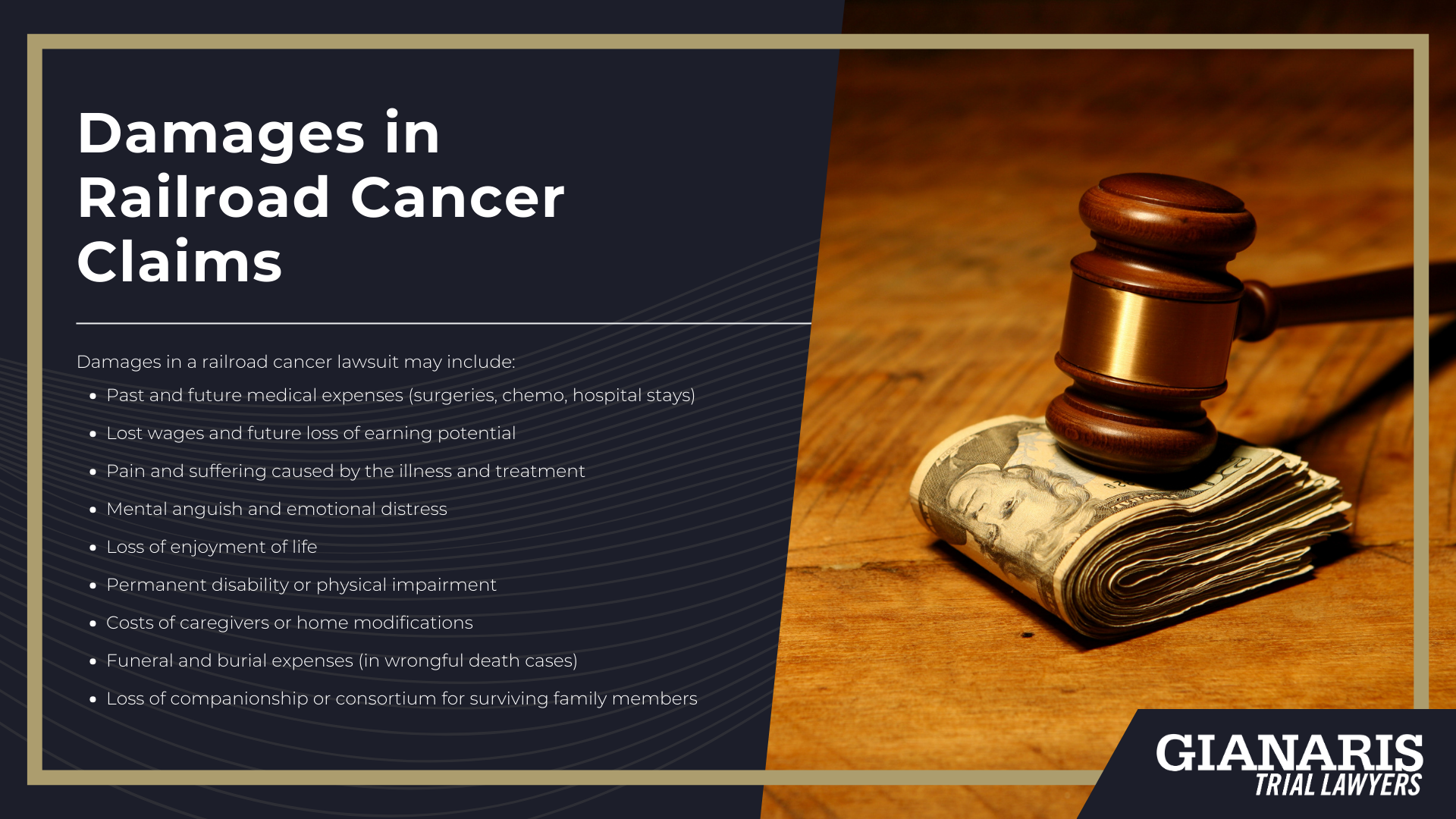Railroad employees face significant workplace exposures to diesel exhaust fumes during routine operations in maintenance shops, rail yards, and onboard diesel-powered locomotives.
Studies have shown that unfiltered diesel emissions in these settings frequently exceed background air levels, leading to prolonged exposure to harmful particulate matter and gases: a key contributor to increased lung cancer risk and respiratory disease among workers.
In a National Institute for Occupational Safety and Health–endorsed study, railroad workers’ occupational exposure to diesel exhaust was linked to measurable increases in lung cancer mortality, establishing a quantifiable cancer risk
Chronic inhalation studies in rats demonstrate that rats exposed chronically to diesel exhaust developed lung tumors and pulmonary damage, supporting human epidemiological findings
Agencies like OSHA and NIOSH emphasize that enforcing workplace safety is critical, especially given that regulatory guidance states there is no known safe level of exposure to carcinogenic diesel particulate matter.

Diesel exposure occurs through particular routes related to railroad operations:
- Breathing exhaust inside or near diesel-powered locomotives, especially in poorly ventilated cabs or tunnels
- Working in engine repair shops or maintenance garages with idling or running diesel engines
- Shunting activities and switching involving frequent starts and stops of diesel-powered yard engines
- Exposure during cleaning or degreasing locomotive components with diesel-contaminated aerosol fumes
- Being stationed trackside or in yards where diesel air pollution accumulates during uncoupling or refueling
- Performing inspections or maintenance near exhaust vents, tunnels, or confined diesel areas
- Frequent contact with diesel fuel residues, including condensates, soot deposits, and leaked fluids
- Interaction with other dangerous substances, including benzene exposure, asbestos, welding fumes, and crude oil—all of which may intensify diesel toxicity
Railroad workers who have experienced long-term exposure to diesel exhaust fumes, especially when combined with other toxic chemicals, are at a documented excess risk of lung cancer deaths, COPD, and other respiratory illnesses.
If your job placed you in prolonged contact with diesel fumes (whether as a conductor, engineer, mechanic, or track laborer) you may have a viable FELA claim.
An experienced attorney can help gather exposure data, demonstrate negligence by your railroad employer, and pursue a claim for serious occupational illness.
Railroad Jobs Specifically at Increased Risk of Diesel Exhaust Exposure
Railroad workers across many job roles have been chronically exposed to toxic fumes from diesel locomotives, particularly in enclosed or poorly ventilated environments.
Prolonged railroad work in these conditions has led to thousands of cases where individuals later developed cancer, respiratory disease, or other debilitating illnesses.
Specific job functions are more heavily exposed due to their proximity to running engines, locomotive parts manufactured with solvents, and maintenance duties involving diesel-powered equipment.
In many of these cases, railroad companies failed to protect workers by not providing proper ventilation, respirators, or diesel particulate filters.
The result has been decades of preventable exposure that may qualify affected workers for compensation under the Federal Employers Liability Act (FELA).
If you worked near diesel engines and later developed illness, your position may have placed you at higher risk.

Job roles with the highest risk of diesel exhaust exposure include:
- Locomotive engineers operating long-haul and yard diesel engines
- Conductors working within cabs and diesel-heavy switchyards
- Rail yard workers and switchmen handling cars near idling locomotives
- Track laborers performing maintenance near active rail lines
- Maintenance-of-way workers operating diesel-powered machinery
- Machinists, sheet metal workers, and shop workers servicing locomotive parts manufactured with diesel-powered tools
- Carmen and repairmen inspecting and repairing diesel engine components
- Signal maintainers exposed during infrastructure upgrades near working trains
- Electricians and welders working in enclosed shops where fumes accumulate
These workers often faced repeated exposure over years or decades, frequently without warnings or protection, putting them at significant risk of disease tied directly to their railroad duties.









